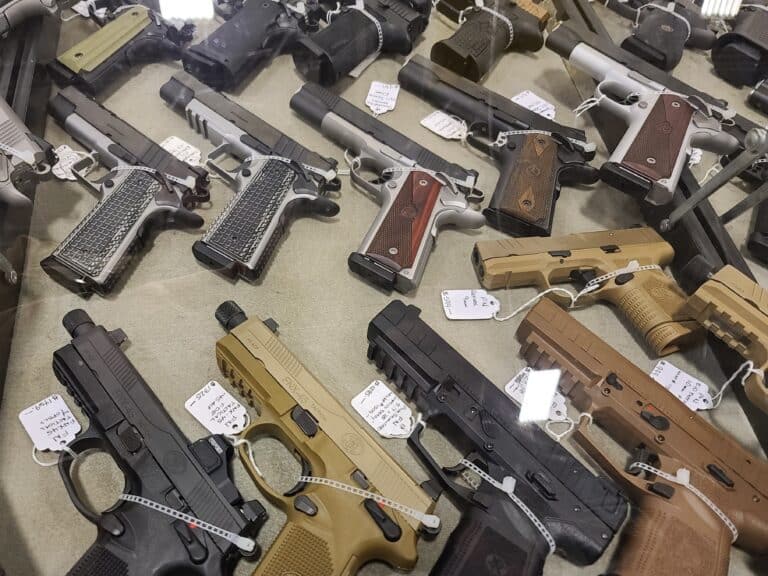We’re diving into the fight over what specific era of history applies when judges analyze gun laws under the Supreme Court’s Bruen standard. This time it relates to age-based gun restrictions. An appeals court struck down Pennsylvania’s effective ban on 18-to-20-year-olds carrying guns during a declared emergency. As Contributing Writer Jake Fogleman explains, the court did so because it limited its inquiry to right around the Founding Era. But other courts have come to the opposite conclusion by expanding their search to include mid-to-late 19th-century regulations as well. Which side the Supreme Court ultimately comes down on will ultimately determine the breadth of gun rights for adults under 21. The other fight we’ve focused on is the non-existent one surrounding gun policy in the Republican Presidential Primary. Frontrunner Donald Trump has a record he can run on, but one that also has a number of vulnerabilities from the right. At least one of his opponents built up a track record that seemed tailored to contrast well against Trump. But, with the primary potentially coming to an early end if Trump wins decisively in New Hampshire, nobody has made his gun record an issue. It’s rather inexplicable. Plus, author Mark W. Smith joins the podcast to discuss a surprising legal maneuver in the case against Maryland’s AR-15 ban. Analysis: Judges Split on Historical Basis for Age-Based Gun Bans [Member Exclusive] By Jake Fogleman Are age-based restrictions on gun rights for young adults constitutional? Or are they incompatible with the right of the people to keep and bear arms? The answer, it seems, depends on your view of history. A three-judge panel for the Third Circuit Court of Appeals contributed to the recent trend of federal courts casting doubt on gun restrictions for adults under 21 on Thursday. It struck down a Pennsylvania law prohibiting that group from carrying firearms during emergency declarations. “Through the combined operation of three statutes, the Commonwealth of Pennsylvania effectively bans 18-to-20- year-olds from carrying firearms outside their homes during a state of emergency,” Judge Kent A. Jordan wrote in Lara v. Comm’r Pa. State Police. “The words ‘the people’ in the Second Amendment presumptively encompass all adult Americans, including 18- to-20-year-olds, and we are aware of no founding-era law that supports disarming people in that age group.” Some courts had already cast a skeptical eye toward age-based gun restrictions even before the Supreme Court’s 2022 New York State Rifle & Pistol Association v. Bruen decision. In 2021, a Fourth Circuit panel ruled against the federal under-21 handgun sales ban. Then a Ninth Circuit panel struck down California’s under-21 semi-automatic rifle sales ban in early 2022. But such rulings have only accelerated since the High Court handed down its history-based test for Second Amendment cases. In addition to the Third Circuit, federal judges in Texas, Tennessee, and Minnesota have all ruled against carry restrictions for 18-20-year-olds using the Bruen analysis. Meanwhile, federal judges in Virginia, Colorado, and West Virginia have all done the same for gun sales restrictions on the same age range. However, the federal judiciary hasn’t been unanimous




